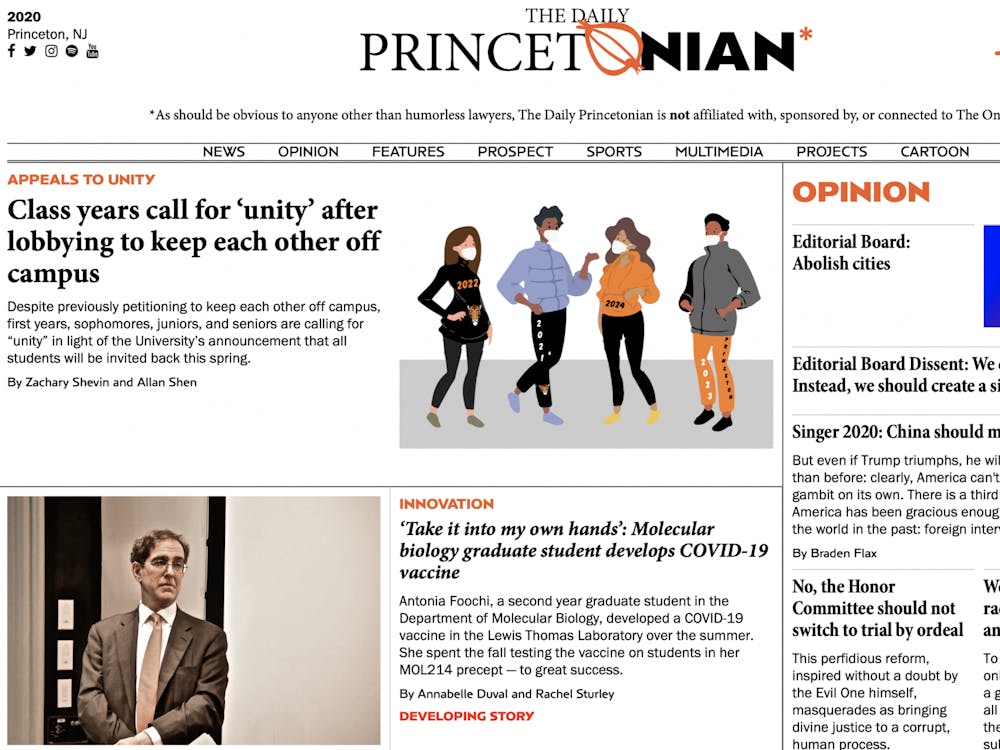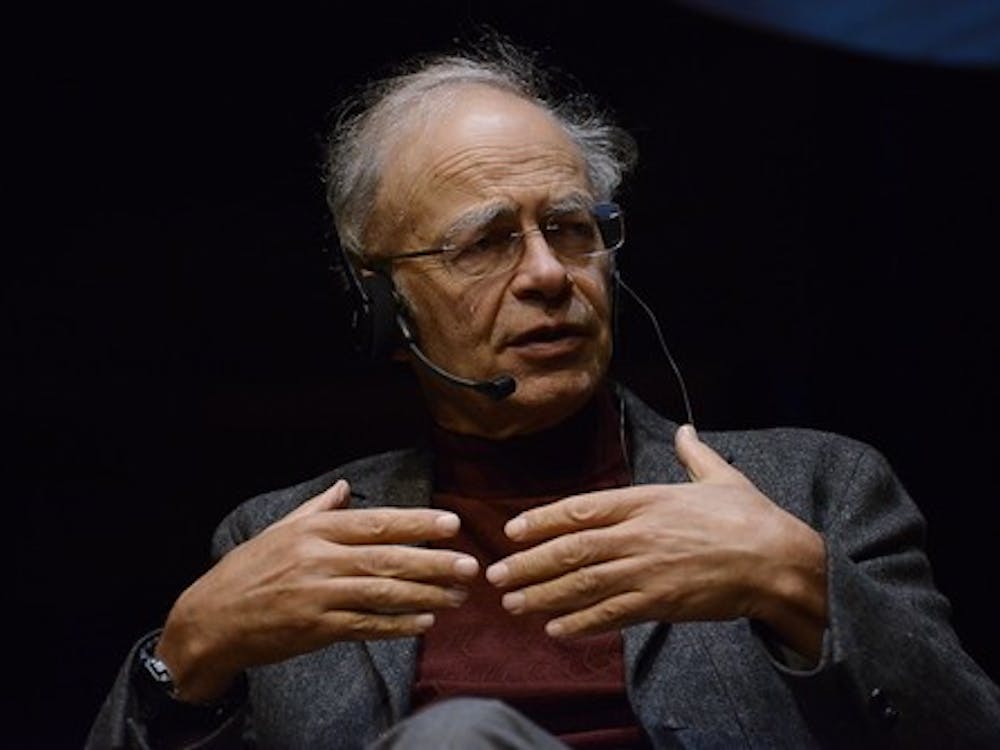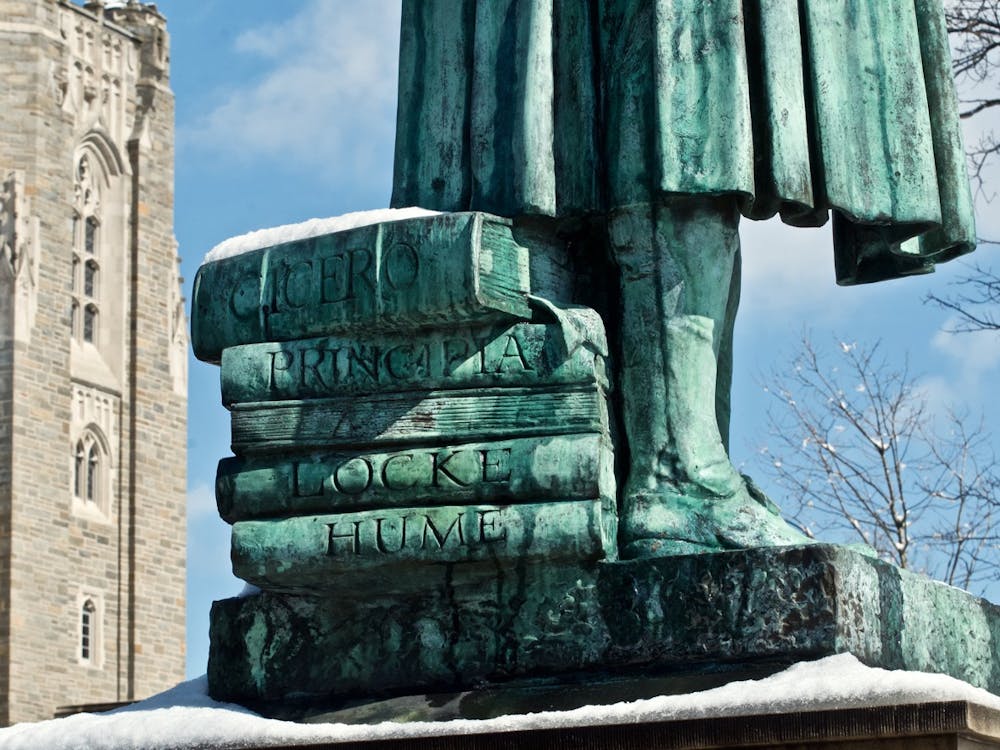The following content is purely satirical and entirely fictional. This article is part of The Daily Princetonian’s annual joke issue, which you can find in full here. Don’t believe everything you read on the Internet!
Of all the political issues of our day, among the chief debates that persists throughout the entirely even playing field of the free marketplace of ideas is that of cities. Are cities good? It is a question without an initially clear answer. On the one hand, you can easily walk from place to place. On the other, you have to walk from place to place. Plus, there is no room for pets larger than a very small refrigerator. Given these tremendous roadblocks to the American dream of life, liberty, and the pursuit of happiness, this Board proposes doing away with cities.
How would we go about abolishing cities? The solution is simple. This Board proposes that all trash be permanently stored within five miles of where the waste is produced. High-density areas would quickly find themselves filled with trash, and thus, to avoid that problem, high-density areas will begin to spread out over a larger geographic span, leading to the de facto disappearance of all cities.
The benefits to the abolition of cities and the spreading out of the populace over a wider geographic span are self-evident. First and foremost, this move would significantly reduce the spread, not only of pathogens and diseases, but also of more abstract concepts, such as people without corgis. In a packed city, one is forced to see multitudes of people, many of whom do not have corgis waddling beside them. In a cityless era, with everyone a distance away from you, the only people you have to see are those you curate through the internet.
Nevermore will you have to subject yourself to a corgiless person. With people at a distance, and the wonders of the internet at your fingertips, you can exercise your God-given right as an American to only see pictures of people with corgis.
Secondly, a spread of population more evenly over geographic area would actually make the electoral college make sense. In our current system, four percent of the country’s smallest states end up being allotted eight percent of electoral college votes. The solution to this undemocratic situation is clear: have more people in Wyoming. The problem is not an archaic system that thinks democracy is measured in square acres instead of people. The problem is that there are just too many people in California. Spread them out! Think of it as going West, but this time instead of being in search of gold and glory, you’re just looking for some damn peace and quiet.
Finally, a cityless era is an America the founders truly intended. If we understand the United States through a purely originalist lens, the conclusion that the very idea of a city is un-American is inevitable. In the America of 1790, the biggest city the Founders imagined was New York, with a population of 33,131 people, according to a now-dead link on a Wikipedia page. The Founders would be astonished, if not horrified, by the idea that New York City has grown to over 250 times that size. This is not the vision of America that a group of wealthy slave owners who had no conceptualization of either indoor plumbing or the Oort Cloud had of America, and it should not be the vision of America that we have now.
For Princeton specifically, this plan could have nothing but benefits. This school has long since been overrepresented by Californians and New Yorkers. If those students suddenly became Ohioans and Utahites, problem solved! It would also give Princeton students valuable experience out on the plains. It would be like the movie “Cowboys vs Aliens,” but without the aliens.

In conclusion, the abolition of cities prevents the spread of harmful entities, fixes American politics, and is in line with the vision of our founding. The only way to ensure freedom of association is to make it more difficult for Americans to associate by accident. We hope that the University administration and larger community take this charge to heart as we move forward into the next decade.
144th Editorial Board
Members
Ben Ball ’21

Shannon Chaffers ’22
Rachel Kennedy ’21
Emma Treadway ’22
Cy Watsky ’21
A dissent to this piece may be read here.








